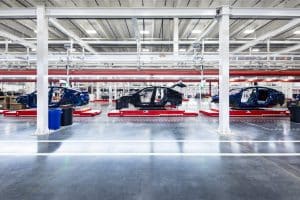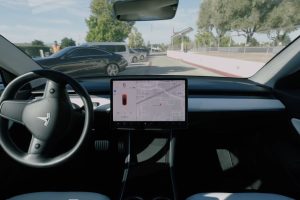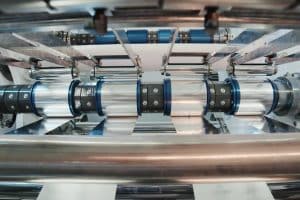- 🚗 Porsche will not use fake gear shifts or engine sounds in its EVs.
- 🔊 Simulated combustion sounds are popular in some EVs like Hyundai Ioniq 5 N, but not favored by Porsche.
- 🏎️ Porsche believes simulating combustion engines lowers EV performance.
- 📈 Porsche sees no advantage in mimicking combustion engine traits in electric cars.
- 💡 Porsche maintains production of ICE vehicles for customers who desire that experience.
In a world where the car industry is rapidly transforming, Porsche remains a beacon of tradition intertwined with innovation. The firm’s latest decision to eschew fake gear shifts and engine sounds in its electric vehicles (EVs) is causing quite a stir—and for good reasons. While some automakers, such as Hyundai with their Ioniq 5 N, have embraced simulated combustion sounds, Porsche has chosen a path truer to its roots.
The Sound of Silence: Why Porsche Opts Out of Fake Engine Sounds
Understanding Simulated Sounds in the EV Market
In the burgeoning EV market, there’s a growing trend to integrate “fake” engine noises that mimic the auditory feedback of traditional internal combustion engines (ICEs). This is particularly popular in high-performance models where the sound of a roaring engine has historically been associated with power and thrill. Simulated sounds are meant to fill in the perceived sensory void created by the silent nature of electric motors.
Porsche’s Rationale
However, Porsche argues that such simulations are not only unnecessary but could detract from the core values associated with electric performance. Here’s why Porsche is avoiding fake engine sounds in its EVs:
- Preservation of Performance: Porsche believes that mimicking the characteristics of a combustion engine could reduce the overall efficiency and performance of their EVs. The electric motor inherently boasts superior power delivery compared to traditional engines, and adding unnecessary sound gimmicks can compromise this.
- Authenticity over Illusion: For Porsche, authenticity is paramount. The brand wants its EVs to represent the future of driving rather than clinging to the past. Simulating an ICE experience defies the futuristic and innovative ethos that EVs represent.
- Diverse Product Offering: Porsche still produces internal combustion vehicles for those customers who value that visceral engine experience. By maintaining a diverse product range, they offer the best of both worlds without compromising the integrity of their EVs.
Simulated Sounds and EV Performance: An Analysis
Efficiency Implications
Adding simulated sounds in EVs might have minimal impact on efficiency, considering the additional components required to generate and control these sounds. Every extra system increases the complexity and potential energy draw, albeit marginally, which could influence the vehicle’s overall performance.
Psychological and Customer Experience
From a psychological perspective, the absence of traditional engine noise can lead to a feeling of disconnect for some drivers. However, Porsche’s strategy relies on educating consumers about the distinct advantages of silent, smooth power delivery intrinsic to electric motors, thus redefining what high-performance should mean.
Porsche’s Vision for EV Technology
Innovation Anchored in Heritage
Porsche has a long-standing reputation for blending innovation seamlessly with its historical legacy. By choosing to stick with genuine electric experiences rather than mimicking ICE characteristics, Porsche is setting a precedent for excellence in EV manufacturing. Here’s how Porsche is leading EV innovation:
- Focus on Pure Electric Performance: Emphasizing the unique strengths of electric propulsion, such as instant torque and quiet operation, without the need for imitation.
- Commitment to a Dual-Product Strategy: Offering both ICE and EV options, catering to a wide range of preferences while advancing automotive technology.
Future Prospects
Porsche’s decision reflects a broader strategy that prioritizes progressive technology over retrofitting old habits into new frameworks. This bold stance not only sharpens their competitive edge but also aligns with environmental goals by fostering a more genuine adoption of electric vehicles without relying on outdated sensory crutches.





